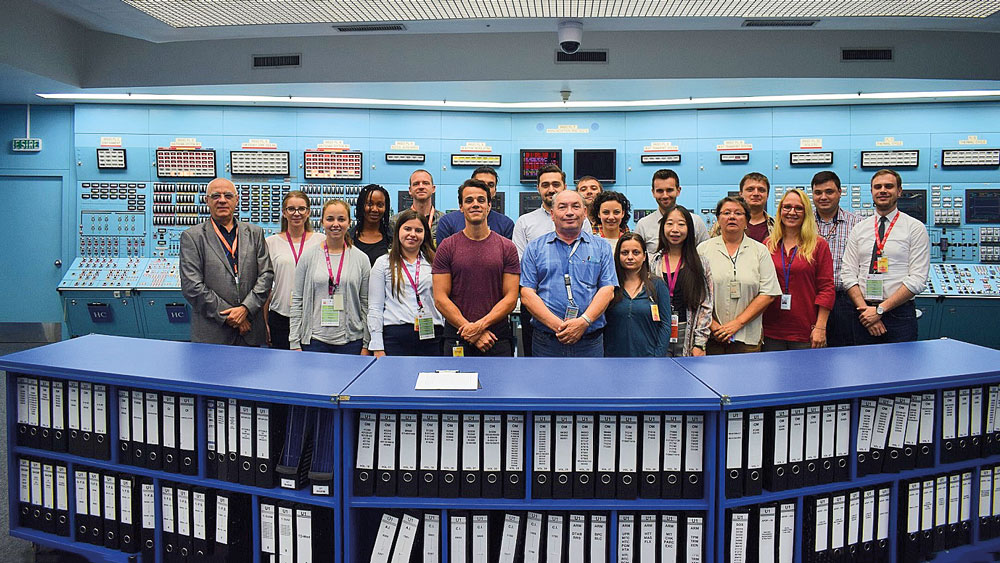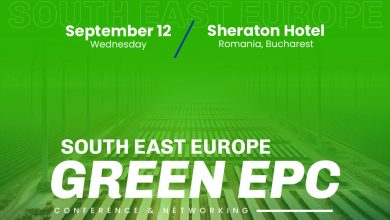EPG Summer School 2018
The first edition of Energy Policy Group’s Energy Summer School took place between July 23-27, 2018 in Bucharest, with a focus on ‘Smart Transformation in the Energy Sector.’
The Summer School enjoyed the participation of 15 young energy professionals from Romania and across the world. Indeed, they came from four continents, had an average age of 27, and were representatives of utilities, NGOs, academia, energy companies, research institutes and public sector. In one densely packed week, they debated the challenges and prospects of the energy sector and of the policy and market tendencies that are shaping the ongoing smart transition towards a decarbonized economy.
24 reputed speakers, Romanian and international (representatives of energy companies, energy consultants, diplomats, policy makers, members of NGOs and the academia) came to share their specialized knowledge and facilitate the debate.
The opening day was hosted by the Academy of Economic Studies, when Valeriu Binig (E&Y Romania Energy Partner), Pal Gerse (Senior Business Development Expert at MET Power Hungary), Daniele Agostini (Head of Low Carbon and European Policies at ENEL Group), Claudia Brandus (President of the Romanian Wind Energy Association), Clive Gerada (Technical Energy Attaché for Malta at the Council of the EU), Corina Popescu (Electrica S.A.) and Andrei Covatariu (Senior Research Associate and Summer School Director at Energy Policy Group) tackled the global, European and regional trends, the future of renewables and their integration in the electricity system, as well as the overall measures taken for decarbonization of the energy sector.
On the second day of the Summer School, the group visited the Cernavoda Nuclear Power Plant. The visit started with a session held by Dorin Chirica, President of FORATOM, who showcased the current status of the nuclear industry around the world. The group visited the control room of Unit 1. A rich and interesting presentation was also given by Ionel Bucur, Principal Nuclear Expert.
OMV Petrom hosted the third day of the Summer School, which focused on the clean transition in the transport sector. Wednesday’s speakers Radu Dudau (Co-founder and Director of Energy Policy Group), Vasile Iuga (reputed independent expert and member of EPG’s advisory board), Nuno Silva (Technology and Innovation Director at Efacec and FEL-100 Chair of the Board), Nolan Theisen (Head of Energy Program of GLOBSEC Policy Institute, Bratislava), Marius Chiriac (ENEL Romania), Daniel Apostol (Senior Economic Journalist at Profit.ro and Econonomistul) and Stefan Roseanu (General Manager of the Association of Metropolitan Mobility) opened thorough discussions about the transport sector and its fuels, challenges and prospects, but also about its clean alternative: electricity, biofuels, natural gas, and hydrogen, as well as smart urban planning, digitization etc.
The fourth day was hosted by EFdeN at their educational passive house, where the participants had the opportunity to focus on digitalization, demand-side management and energy efficiency in buildings. Victor Grigorescu (former Romanian Energy Minister) and Razvan Grecu (President of the Romanian Association for Energy Efficiency) talked about smart technologies, emerging products and services, efficient solutions and needed policies and regulations. Then, Claudiu Butacu (President of Solar Decatlon) and Mihai Toader-Pasti (General Manager and co-founder of EFdeN) gave an extensive presentation of EFdeN’s passive house. The day ended with a Design Thinking Workshop, guided by Adelina Dabu (FEL Romania member) and Tudor Juravlea (Co-founder of Design Thinking Society).
Friday, the final day of the Summer School, was again held at the Academy of Economic Studies. It included an interesting discussion about the energy trilemma, a session designed and conducted by Gelem Lluberes (Global Portfolio and Business Development at Siemens and FEL-100 Board Member). The final activity of the day, guided by Andrei Covatariu, EPG Summer School’s Director, was the first-ever World Energy Simulation Game held in Romania (a role-playing exercise that enables people to try out the policies and investments that will allow them to reach their goals on climate change).
The EPG Summer School 2018 was a great opportunity for graduate students and young professionals all over the world to interact, debate and connect, building the base of a community of alumni and lecturers that is bound to grow in the following years. This was only the first step of an ambitious educational project designed and managed by Energy Policy Group. The second edition is already being planned for the summer of 2019.



